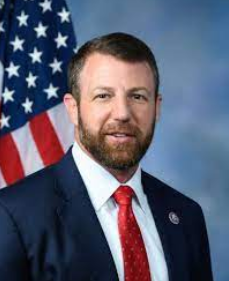U.S. Senator Markwayne Mullin emphasized the importance of reading a forthcoming border security bill before making judgments about it, in a video shared on social media and with the media last Friday.
“It bothers me when people advise against supporting this bill without having read it,” Mullin stated.
Joining Mullin in the discussion is his Oklahoma colleague, U.S. Senator James Lankford, who serves as the chief Republican negotiator for the agreement. Though the final draft hasn’t been released, there’s already significant speculation and controversy among some Republicans, including Donald Trump, the former president and potential 2024 GOP candidate, over the bill’s speculated contents.
The bill, in addition to border security efforts, proposes funding for Israel, Taiwan, and Ukraine as part of national security initiatives.
Given Mullin’s support for aid to Ukraine and his alliance with Trump, his stance on the bill is notably complex. On Friday, he specified his benchmarks for supporting the bill, focusing on three critical aspects: reducing illegal immigration, reforming the asylum process, and altering the parole process.
Deciding on legislation without having read its text is premature, Mullin argues, stressing the importance of being fully informed before making a decision.
Mullin also pointed out that while he strives to represent his constituents effectively, it is equally his duty to be well-informed.
Some Republicans have expressed opposition to nearly any border security legislation that doesn’t amount to a total surrender by the Biden administration, preferring to keep the issue alive for the 2024 presidential election campaign. Opposition also stems from the bill’s inclusion of aid to Ukraine.
Recently, a group of Oklahoma Republicans voted to effectively renounce Lankford due to his role in the negotiations.
Lankford has mentioned that the deal aims to amend laws concerning the asylum process, which involves the parole of immigrants on their own recognizance, and would grant the president the explicit authority to shut U.S. borders under specific circumstances of illegal entry.
